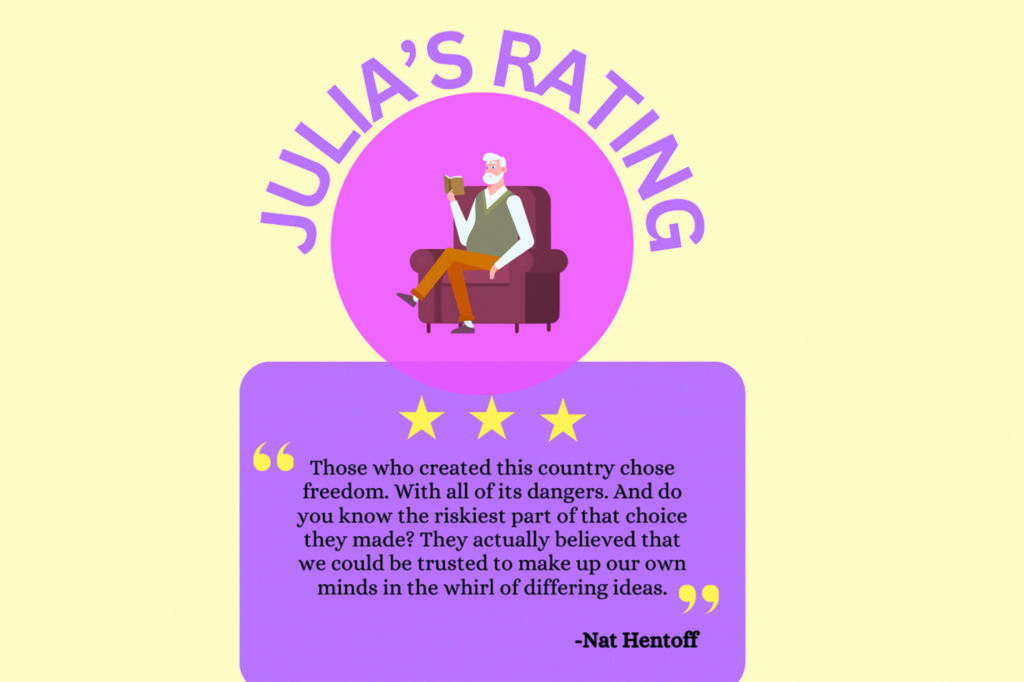Colorado Mesa University (CMU) President John Marshall handed me his copy of “Free Speech for Me, But Not for Thee” by Nat Hentoff last semester.
This was during an interview about the Free Speech and Civil Discourse Committee on campus. I recently returned the book. It forced me to question my personal values about topics like hate speech, defamation and censorship.
Riddled with technical terms and court case references, I had to look up well over 50 words while reading it. I had to define words like “excoriate,” “comity” and “Rabelaisian.” I also found myself rereading some sections to make sure I’d fully grasped the point Hentoff was making (hint: free speech is important). I kept a running list of books and figures he referenced so I can continue to shape my opinions on free speech.
Hentoff’s book is concise and unwavering. Free speech, as enshrined by the Framers in the First Amendment of the Bill of Rights, is foundational to personal liberties which are under attack today. Whether it be in public schools, higher learning, publishing, journalism or the United States Supreme Court, free speech is constantly being limited. The pendulum of censorship can swing hard in one direction but will always swing back to the other side.
Often, that censorship comes with altruistic intentions. Meaning that the ideas put up on the chopping block are frequently offensive, subversive or unpopular. The censorship is often crusaded by marginalized people at the receiving end of that offense. Hentoff, as well as many of his references, argue that unpopular opinions are in need of the most protection.
“Those of all colors who would beat down the devils of racism, sexism, homophobia et al. by suppressing speech will, of course, find that, inescapably, they will have no protections when the winds blow,” said Hentoff.
Personally, Hentoff identifies as an anti-racist, feminist, anti-Zionist Jewish man who loves jazz. This however, does not mean he supports eliminating dialogue with those who oppose these ideals.
The basis of his argument lies in quoting famous law professors from Yale, Supreme Court Justices, constitutional lawyers and other advocates of free speech for all. The quotes are followed by an analysis from Hentoff. This writing can be dry at times, but Hentoff balances this with levity that had me running to my partner so I could read it aloud and laugh with him.
To say that Hentoff beats a dead horse is an understatement. Every single chapter can be distilled to the same central theme but he represents it with new and specific examples. He covers book bans, free speech at universities, trade embargos and so much more.
Hentoff decries that the only practical and constitutionally sound retaliation to free speech that makes us uncomfortable is more free speech. He asserts that suppressing dissenters or unpopular opinions just drives them underground where they can expand in secret. Letting the unpopular opinion have its time to be shared allows it to be rebuked by more free speech and decisively defeated on principle, rather than by restriction.
I found myself applying his argument to modern day issues such as Q-Anon, removing critical race theory from schools, the slew of book bans in Florida and the overall division that topics like these generate. Understanding how the dissent forms an argument is the basis for defeating it, and how can you understand it if it gets cut from the conversation entirely?








